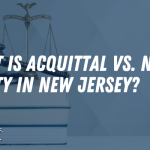For many plaintiffs, accessing critical legal resources is a costly endeavor. Lawsuit loans provide a financial bridge that enables plaintiffs to secure essential legal support and expertise, without compromising on the quality or duration of their case preparation. From securing specialized attorneys to covering litigation expenses, lawsuit loans offer a strategic advantage that empowers plaintiffs throughout the legal process. Below, we explore the different ways lawsuit loans support plaintiffs in gaining access to the legal resources they need to succeed.
Affording Specialized Legal Representation
For complex cases, plaintiffs often benefit from attorneys with specialized experience in a particular area of law, such as medical malpractice, intellectual property, or corporate litigation. These attorneys tend to command higher fees due to their niche expertise. Lawsuit loans make it feasible for plaintiffs to hire the right attorney, ensuring their case is in capable hands. Specialized legal representation often brings:
- In-depth knowledge of specific laws and regulations, allowing for targeted legal strategies.
- Greater familiarity with industry-specific protocols or standards.
- Enhanced courtroom presence and credibility that can strengthen a plaintiff’s position.
With a lawsuit loan, plaintiffs are not limited to general legal counsel but can instead work with attorneys who possess the necessary specialization, maximizing their chances of success.
Bringing in Expertise Early in the Case
Securing specialized legal representation from the outset allows for a stronger, more focused approach, preventing potential pitfalls that can arise without specific expertise.
Funding Legal Research and Expert Witnesses
Legal research and expert witness testimony are often essential components in building a compelling case, but they are also costly. Many plaintiffs may struggle to afford the upfront fees required for these critical services. A lawsuit loan can help finance these needs, allowing plaintiffs to:
- Conduct thorough legal research that underpins their case’s arguments with facts and precedents.
- Hire expert witnesses who can provide specialized insights that enhance the credibility of the plaintiff’s claims.
- Fund scientific or technical analyses that may be required to substantiate claims in cases involving complex evidence.
These elements play a significant role in reinforcing the plaintiff’s stance, making lawsuit loans a valuable tool in ensuring a comprehensive legal approach.
Strengthening the Case with Detailed Research
With the ability to conduct thorough legal research and present expert testimony, plaintiffs can bolster their case, giving them a more solid foundation to reach a favorable outcome.
Covering Administrative and Litigation Costs
The administrative and procedural costs associated with litigation can be substantial, particularly for lengthy cases or cases with high documentation needs. Lawsuit loans can cover these costs, which may include:
- Filing fees, which can accumulate in cases with extensive court motions or documents.
- Document preparation and processing expenses, especially for cases requiring significant evidence submission.
- Travel expenses for out-of-state depositions, witness interviews, or other legal proceedings.
These logistical expenses often go overlooked but are essential for maintaining momentum in a case, especially when legal teams must manage numerous administrative tasks.
Ensuring Case Progression Without Delays
With administrative and litigation costs covered, plaintiffs can focus on advancing their case without disruption, strengthening their legal position as they move forward.
Accessing Investigative Services for Evidence Collection
In many cases, thorough evidence collection is crucial for building a compelling argument, yet plaintiffs may lack the resources to pursue these services. Lawsuit loans provide the means to invest in comprehensive investigative services that gather essential evidence. These services may include:
- Private investigators who can uncover hidden information or verify facts crucial to the case.
- Digital forensics experts who can analyze electronic data or recover deleted information.
- Medical or technical professionals who can provide specialized analyses of evidence, such as lab results or product defects.
Access to these investigative resources can be transformative, giving plaintiffs a solid factual basis to present their claims effectively in court.
Backing Claims with Verified Evidence
Well-documented evidence, supported by expert investigations, significantly enhances a plaintiff’s credibility, ensuring that their case is persuasive and well-supported.
Managing Long-Term Legal Support for Extended Cases
For plaintiffs involved in lengthy legal proceedings, ongoing access to legal support can become financially burdensome. Lawsuit loans provide a consistent source of funding that allows plaintiffs to maintain quality legal support for the duration of their case. This can include:
- Covering retainer fees to keep attorneys engaged for the long haul.
- Ensuring continuity of representation to avoid the setbacks that can occur if legal counsel changes mid-case.
- Maintaining access to essential legal resources throughout the litigation process, from the initial filings to the final stages of settlement or judgment.
With sustained funding, plaintiffs can focus on achieving a just outcome without the pressure of securing additional finances over time.
Securing Stability Over the Long Term
Continuous access to legal resources fosters consistency in the case, allowing plaintiffs to pursue a favorable outcome with a stable legal team by their side.
Conclusion
Lawsuit loans play a pivotal role in enhancing access to key legal resources that can significantly impact a case’s outcome. By providing financial support for specialized representation, expert witnesses, investigative services, and ongoing legal support, these loans empower plaintiffs to tackle legal challenges with confidence. When plaintiffs are well-resourced, they can fully engage with the legal process, maximizing their chances for success while upholding the integrity of their case.



